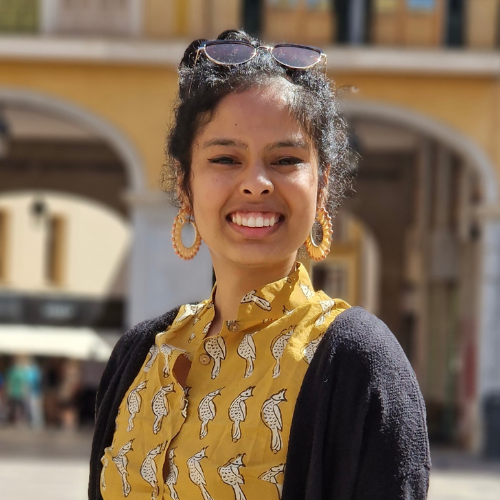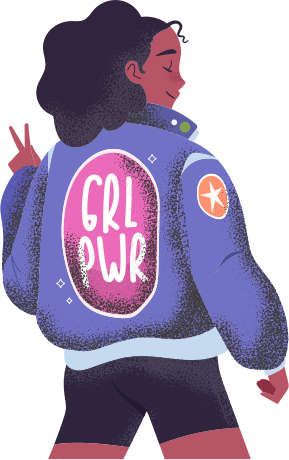by Priyanka Roychoudhury
For as long as I can remember, I’ve been a “yes” person. You know the type – always ready to lend a hand, take on extra work, or rearrange my schedule to accommodate others- basically being the ‘nice’ person. It’s not that I didn’t want to say no; I just found it incredibly difficult. As I’ve talked with other women in my journey through my 20s, I’ve realised I’m not alone in this struggle and that women disproportionately suffer from it. Many of us find it challenging to set boundaries and prioritise our own needs. This not only impacts us professionally but personally too. Among other things, it prevents us from having fulfilling relationships which are one of the cornerstones to being happy. In this post, I want to share my personal journey of understanding why saying no is so hard for many women, how I recognised my own people-pleasing tendencies, and the mindful strategies I’ve used to grow beyond these limiting behaviours.
Why Saying No Feels So Hard
Growing up in a middle class Indian family, I was always praised for being helpful and accommodating. “She’s such a sweet and nice girl. Just like Goddess Laxmi” adults would say, and I basked in their approval. This was particularly so in a South-Asian patriarchal society where girls were praised for being respectful and demure. What I didn’t realise was that I was internalising the message that my worth was tied to how much I did for others and how I didn’t push back. As I got older, this translated into a fear of disappointing people or causing conflict if I dared to say no. Being nice was the most important thing. It didn’t matter how much it affected me negatively.
This soon spilled over to my professional life. In my jobs, I worried that declining any request would make me seem less committed or competent than my colleagues. I’d take on extra projects, raise my hands for any volunteering activity, stay late, and even cancel personal plans to prove my dedication. The thought of saying no to my boss or teammates filled me with anxiety. I ended up being overwhelmed which impacted my quality of work. I felt incompetent despite working so hard.
But it wasn’t just at work. In my personal relationships, I found myself agreeing to social engagements I didn’t really want to attend, spending less meaningful time with the people who really mattered to me, and taking on emotional labour that left me drained. I was caught in the people-pleasing trap, and I didn’t know how to escape.
Recognising the People-Pleasing Pattern
It took a burnout-induced health scare for me to realise something had to change. As I lay in bed, exhausted and filled with anxiety, I began to reflect on my patterns. I realised that my constant “yes” wasn’t just kindness – it was a deeply ingrained habit that was hurting me and, paradoxically, my relationships.
I noticed how resentful I felt after agreeing to things I didn’t want to do. I saw how my authenticity suffered as I suppressed my real feelings and opinions to keep the peace. Most painfully, I recognised that in trying to please everyone, I had lost touch with my own needs and desires.
My Mindful Journey to Saying No
Changing lifelong habits isn’t easy, but I was determined to find a healthier way of engaging with the world. I sought help from a coach who guided me on how to get out of this vicious cycle of people-pleasing. I started small, giving myself permission to pause before responding to requests. This simple act of creating space allowed me to check in with myself and my true feelings.
I began practising mindfulness meditation, which helped me become more aware of the physical sensations and emotions that arose when I considered saying no. I noticed the tightness in my chest, the flutter of anxiety in my stomach. Instead of pushing these feelings away, I learned to sit with them, understanding that they were old patterns, not commands I had to obey.
Self-compassion became a crucial tool in my journey. I had to learn to treat myself with the same kindness I so readily offered others. When I felt the urge to say yes out of guilt or fear, I’d take a deep breath and remind myself: “It’s okay to have needs. It’s okay to have limits.” Support from my close friends helped me throughout. They were kind enough to ask me twice whenever I said yes to them so that I got a chance to consider whether I was authentic when agreeing to anything.
I started experimenting with saying no in low-stakes situations. To my surprise, the world didn’t end. Friends and family actually made an effort to respect my boundaries, and those who didn’t – well, that was valuable information about our relationship.
As I grew more comfortable with no, I found my Yeses became more intentful. I had more energy for the things that truly mattered to me. My relationships became more authentic as I learned to communicate my needs and limits clearly. And I am seeing changes at the professional front too – colleagues are taking me more seriously, I am managing my time better and I don;t have a constant feeling of being overwhelmed at my job.
Embracing the Ongoing Journey
Learning to say no isn’t a destination – it’s an ongoing practice. There are still times when I struggle, when the old urge to people-please rears its head. But now, I have the tools to recognize it and choose differently.
If you’re a fellow recovering people-pleaser, know that change is possible. Be patient with yourself. Celebrate the small victories. Surround yourself with people who respect your boundaries. And remember, every time you say no to something that doesn’t serve you, you’re saying yes to your own well-being and authenticity.
It’s a journey worth taking, I promise. Here’s to finding the power of no, and through it, discovering a more genuine, balanced, and fulfilling life.




